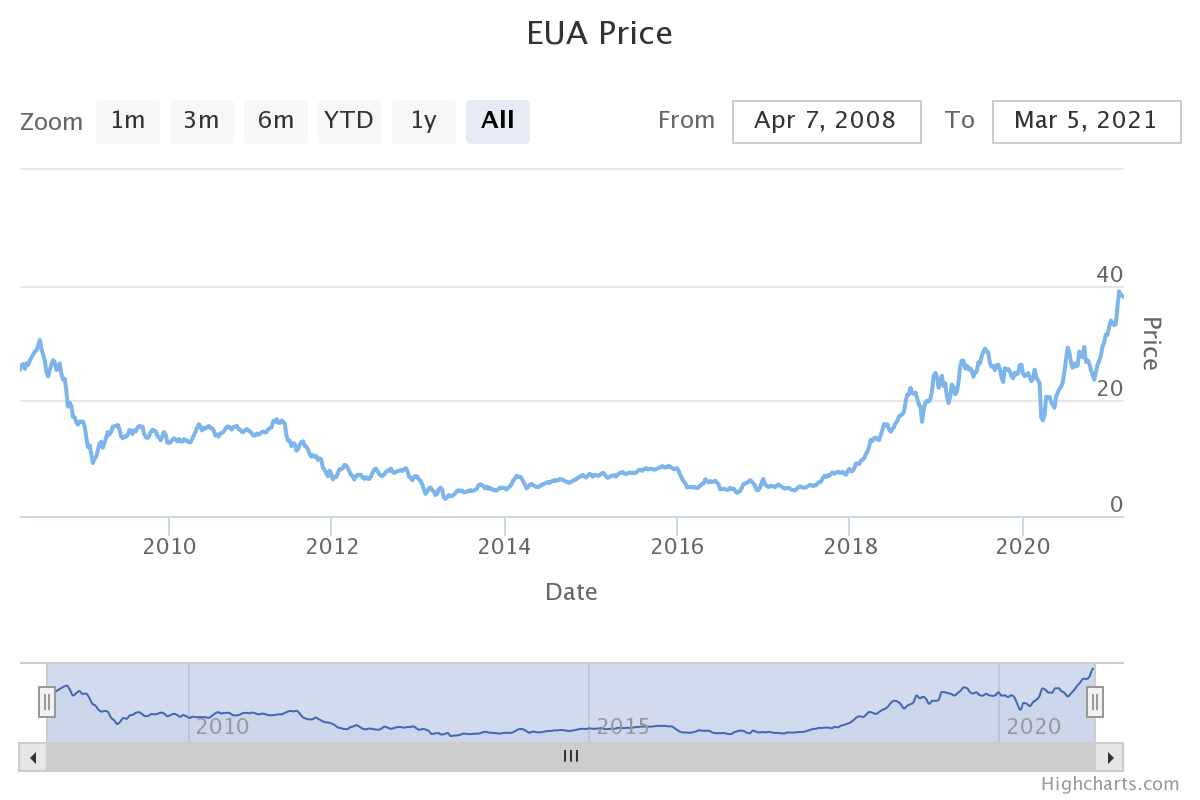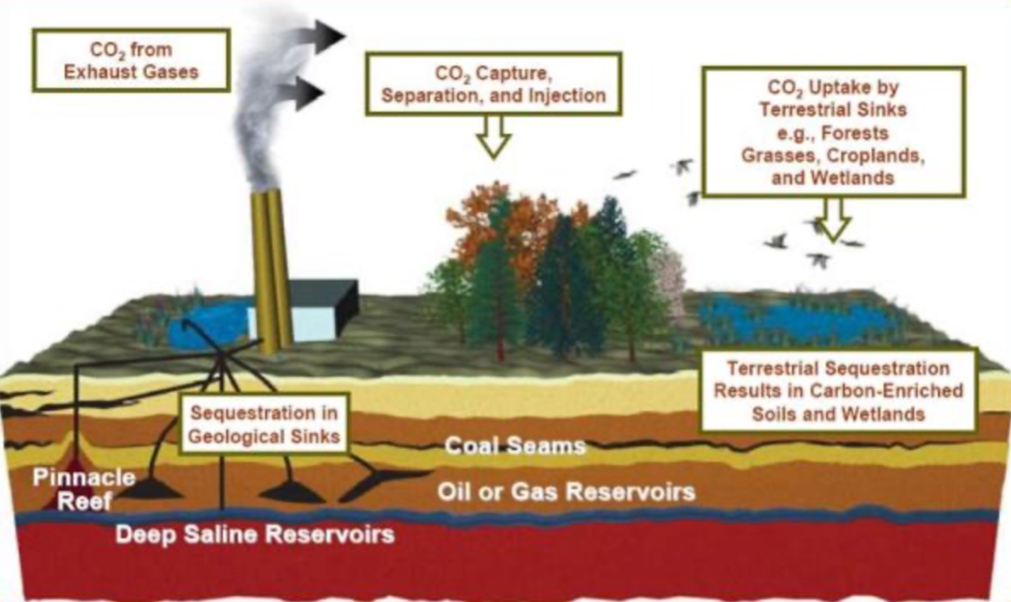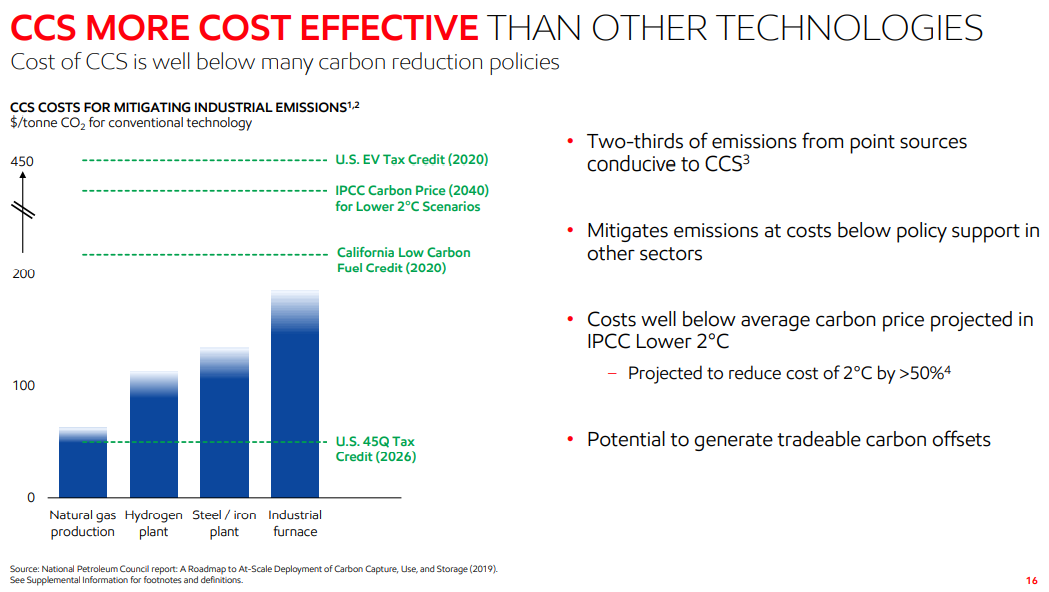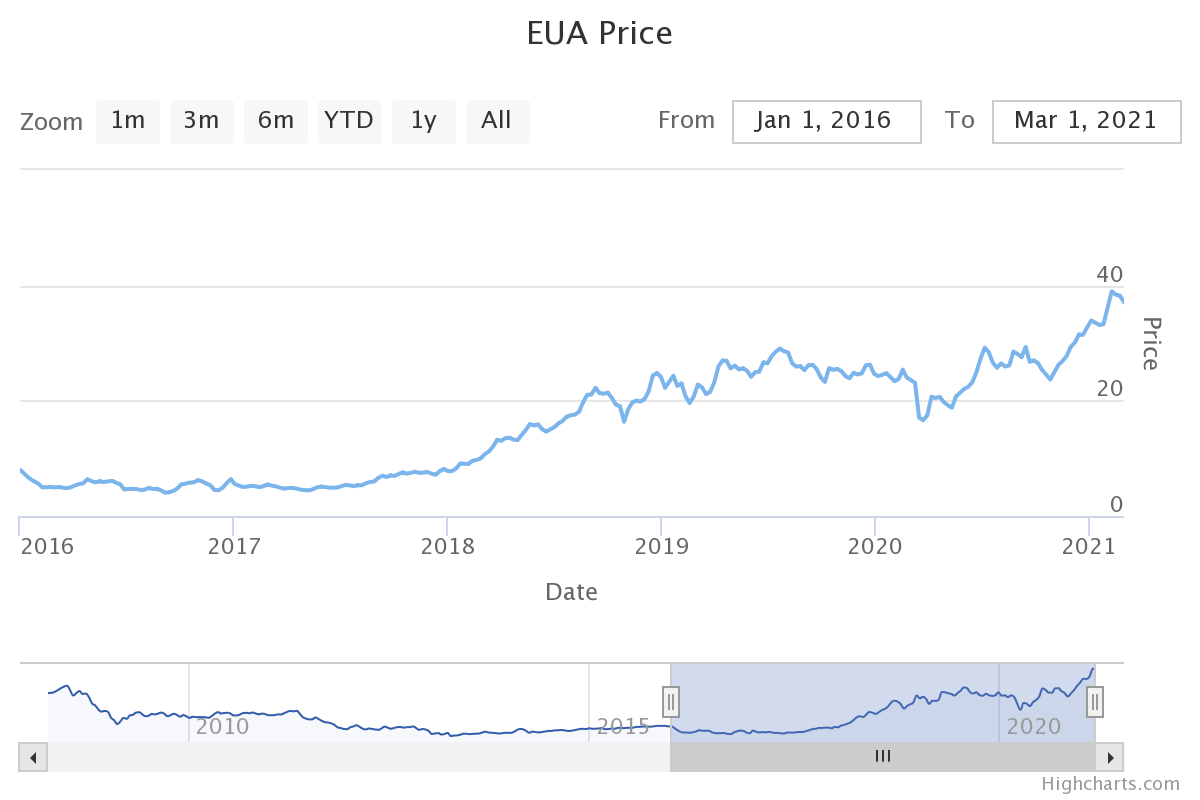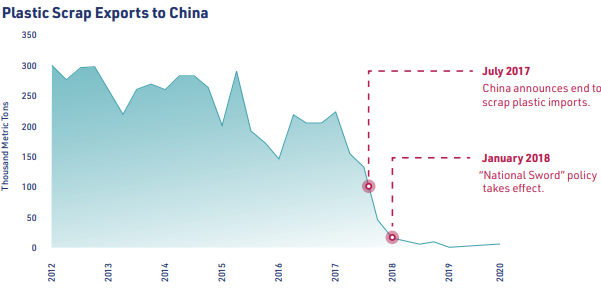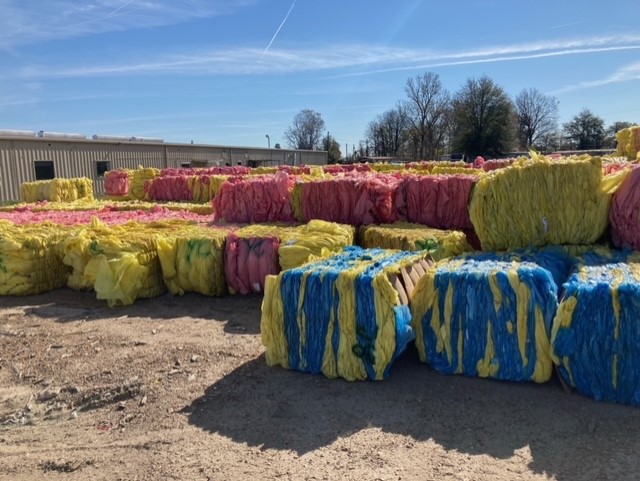The API is suggesting that it would support a carbon tax in the US, but at the same time is suggesting that this would only be supported if it was the only mechanism that regulators used at a Federal level. While both Europe and California have carbon taxes, they have many other regulations and mechanisms to help lower emissions, such as credits for EV use and LCSF in California.
A US Carbon Tax – How Aligned Would the API be with Something That Worked
Mar 8, 2021 11:19:22 AM / by Graham Copley posted in ESG, Carbon Capture, Climate Change, Carbon Tax
ESG and Climate Change: The Un-helpfulness of Political Grandstanding
Mar 5, 2021 12:19:45 PM / by Graham Copley posted in ESG, Carbon Capture, Climate Change
Today we want to focus on an FT article that discusses Members of Parliament criticizing the current UK climate plan as it does not chart an exact path to 2050 goals. If any country is going to achieve the goals of the Paris Agreement their path should probably be unclear at this time, in that transitional steps are needed to get from here to 2050, which are improvements on current power, and transport systems but not the ultimate solution. Furthermore, we still need some new technology, either improvement in current processes or radical breakthroughs to solve some of the harder emission problems.
Carbon Capture's Day is Coming...
Mar 4, 2021 10:55:21 AM / by Graham Copley posted in ESG, Carbon Capture
With ExxonMobil anchoring much of its “greener” strategy in carbon capture at its analyst day yesterday, the subject of lower-carbon fuel has been elevated and ExxonMobil is not the only one talking about it. More than 75% of the carbon footprint of a hydrocarbon-based transport fuel today comes out of the exhaust or stack when the hydrocarbon is burned – to fuel an engine or create steam for a turbine. The oil companies can capture carbon on refineries, reduce methane leaks, use renewable power for pumping and their transport fuel – to move materials to market, but they cannot do anything about the 75% - Scope 3 – emissions without buying offsets, or sequestering more carbon than they produce (which is Oxy’s plan). Whether a consumer will be more attracted to a “lower-carbon” gasoline remains to be seen, but they are unlikely to pay more for it but might buy preferably if the price was the same – which might be possible if the fuel providers were lowering their costs by avoiding a carbon penalty.
ESG Becomes a Corporate Objective
Mar 3, 2021 11:50:40 AM / by Graham Copley posted in ESG
We need to break down our ESG commentary into two distinct sections as the terminology is now being applied not only to how the investment community is investing but also to how corporates are changing behavior. There is a link, in that one of the motivations for behavioral change at the corporate level is to meet investable ESG criteria, but there are other reasons why corporate behavior is changing and it is not just to do with equity value. With ESG factors now impacting debt costs and perhaps more important, activist behavior and all stakeholders, including customers, the issue is being increasingly becoming a core Board responsibility, whether encompassed within a sustainability mandate or addressed more specifically.
The Markets, Not State Courts, Must Lead on Climate Change
Mar 2, 2021 11:11:43 AM / by Graham Copley posted in ESG, Climate Change, Sustainability
While Corporate America has been tugged towards climate and other sustainability issues for years, the step changes of 2020 were significant. The willingness to listen and act, moreover, is high and rising every day. Climate change is becoming more widely recognized and accepted as a critical issue by U.S. corporations. In fact, in our strategy-focused consulting business, we are now almost exclusively focused on climate change and environmental, social, and governance (ESG) related initiatives. This shift has been driven by demand – rather than us – from companies new and old looking for the right answers.
Carbon Pricing: Tax Could Enable a Game Changer
Mar 2, 2021 10:30:26 AM / by Graham Copley posted in ESG, Carbon Capture, Wind Power, Biofuels
The most significant item worth discussing today is yesterday’s news that the API is likely to support a carbon pricing mechanism in the US. We will have more on this in our ESG and climate piece tomorrow. This is not a game-changer in itself, but it opens the door for one. Imposing a cost on emissions, whether a direct tax or a trading mechanism, as in Europe (but hopefully better managed in the early stages), will likely drive real change and significant investment, as it has done in Europe. The devil will be in the details and how many loopholes are attached to any regulation. For example, the chemical and energy industries are likely to lobby hard for no carbon taxes on exports for fear of losing competitiveness.
Plastics Recycling – Slow Progress: Not Much Quality Product & An Idea
Feb 26, 2021 12:06:11 PM / by Graham Copley posted in ESG, Recycling
Plastics Recycling – Slow Progress – Not Much Quality Product and An Idea
As we noted a couple of days ago, the significant increase in recycled polymer prices in recent weeks has not been driven by altruistic behavioral change, but by a need to find cheaper polymer as virgin resin prices have shot up. What will likely be a very quick conclusion is that there is not that much high-quality recycled polymer to go around. The volumes available from the multiple recycling programs that we highlight on almost a daily basis are small and will have minimal impact on the overall market, while possibly having an incremental impact on average pricing for those that can use the materials. A radical rethink is needed around recycling and it involves more than just some low-risk JV’s from the major producers, such as the one highlighted in our daily today between Agilyx and Exxon. Everyone knows that the major constraints, especially in the US, are around collection and separation, with a general lack of coordination between plastics consumers, waste companies, and municipalities. We see some local initiatives that appear to be moving in the right direction, but nothing moving fast enough to make a meaningful impact. Waste is likely to take a back seat to emissions in terms of Government-led initiatives in the US for a while in our view.
We have a potential business model for a more holistic approach to recycling and we are in discussion with a couple of potential partners to create a business plan, initially for a first investment, but around a design that could easily be repeated. Please reach out to us if you would like to learn more.
The Complexity of Recycling & CO2 Footprints
Feb 25, 2021 11:57:09 AM / by Graham Copley posted in ESG, Carbon Capture, Recycling
Two things today – first, we find continued calls for “advanced recycling” technologies and systems. A couple of the primary issues are not that advanced, collection, transportation, and cleaning, but all require breakthroughs, which in some instances may be local and not economically replicated elsewhere. The strict FDA demands on what types of recycled polymer can be used in food packaging applications exclude many recycled material streams. This is especially true with many of those who have already had food contact applications. Advances in cleaning might meet FDA standards and increase the available pool of useable polymers. The challenge here is that a cleaning process likely works best once the polymer has reground into standard shapes – which would need to come after any AI-enhanced sorting innovation. That would lead to cleaning more than one stream and keeping the polymers segregated – which would cause inefficiencies. Right now, “advanced recycling” technologies appear to be a euphemism for disposal. Anything that can deal with a mixed and not necessarily clean stream will be breaking the polymers down chemically to form some fuel or feedstock for more plastics – it is a significant step down in value and maybe the word “advanced” is misplaced.
Biofuels and the Materials Opportunity
Feb 24, 2021 11:27:50 AM / by Graham Copley posted in ESG, Recycling, Biofuels
We should focus on the Gevo headline today (Gevo and HCS Group Sign Strategic Agreement to Produce Renewable Low-Carbon Chemicals and Sustainable Aviation Fuel in Europe) as it indicates further acceptance of the technology as well as the opportunities in aviation and other fuels. It is also interesting to note that HCS Group, which has signed the JV with Gevo, mentions low-carbon chemicals in the headline.
Waste Plastic Prices Rise (But Not For The Right Reasons)
Feb 23, 2021 11:39:33 AM / by Graham Copley posted in ESG, Hydrogen, Recycling
There is a lot of news about plastic waste/scrap prices rising this week. History suggests that we should not extrapolate this into any medium to longer-term conclusions about the longer-term fortunes of recycling. Every time base polymer prices rise above a certain point, companies using plastics with less rigorous product quality requirements start looking for anything they can get their hands on – especially if the supply of virgin resins is physically limited. This was the case when oil prices peaked in 2013/2014 and it was also the case in the early 1980s. The difference today is that a prolonged shortage may help to kick-start some recycling initiatives where consumers find that they can use the lower quality product effectively and choose not to switch back as virgin polymer availability rises because of the PR element of what they have switched to. That said, if virgin prices collapse later in the year, there would almost certainly be some switching back. We have been advocates for some time of a more holistic approach to recycling in the US (and globally) where buyers who want recycled content to accept that they must pay prices based on costs rather than a virgin polymer price marker. Without this, we will not drive the necessary investment to create sustainable and efficient models for recycling that can compete at lower prices.


